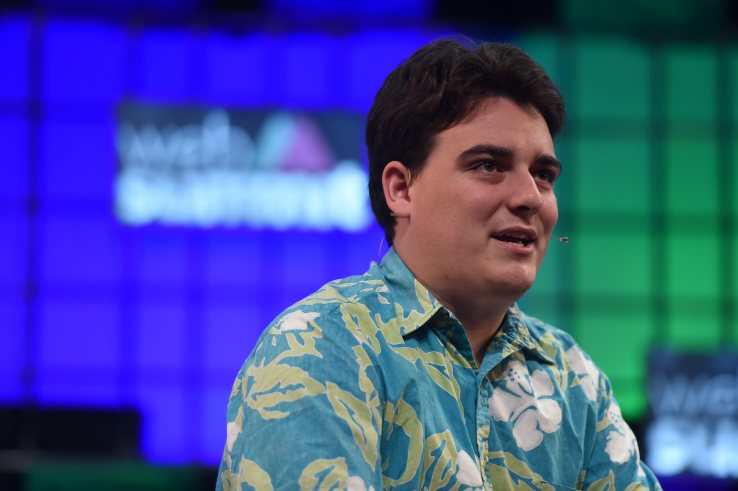Jury awards ZeniMax $500 million in Oculus VR lawsuit


Facebooks acquisition of Oculus just became a half billion more expensive.
A jury in Dallas, Texas has awarded ZeniMax Media $500 millionafter finding that Palmer Luckey (and by extension Oculus VR) violated the terms of a non-disclosure agreement. The jury also found Oculus guilty oncharges related to false designation and copyright infringement. Oculus was notably found not guilty on charges related to claims by ZeniMax that the company stole trade secrets to create the Rift headset,Polygonreports.
Luckey must personally pay $50 million in the suit, while former Oculus CEO Brendan Iribe will be forced to pay $150 million.
Facebook is now tellingTechCrunchthat ZeniMax Media was actually seeking a reported $6 billion in thiscase, not the $4 billion that was previously reported. Given the maximum possible penalty, this obviously isnt the worst possible outcome for Facebook, a company that is likely able to viewa $500 million judgment as a slap on the wrist, especially given the resources they have been devoting to their virtual reality efforts.
Facebook is set to release its quarterly earnings in just a few minutes; well see if Facebook CEO Mark Zuckerberg has anything to say on the investor call about this court decision and how it will impact the company.
Update:Facebook has sent TechCrunch its official comment on the ruling.
The heart of this case was about whether Oculus stole ZeniMaxs trade secrets, and the jury found decisively in our favor. Were obviously disappointed by a few other aspects of todays verdict, but we are undeterred. Oculus products are built with Oculus technology. Our commitment to the long-term success of VR remains the same, and the entire team will continue the work theyve done since day one developing VR technology that will transform the way people interact and communicate. We look forward to filing our appeal and eventually putting this litigation behind us.
For its part, a spokesperson for ZeniMax Media saidthe company waspleased with the decision and isfurthermore looking to ensure there will be no ongoing use of our misappropriated technology, including by seeking an injunction to restrain Oculus and Facebook from their ongoing use of computer code that the jury found infringed ZeniMaxs copyrights.
Robert Altman, ZeniMaxs Chairman and CEO, said in a statement, Technology is the foundation of our business and we consider the theft of our intellectual property to be a serious matter. We appreciate the jurys finding against the defendants, and the award of half a billion dollars in damages for those serious violations.
At the heart of this case was ZeniMax Medias assertionthat VR technology they had created was used illegally by Oculus founder Palmer Luckey to create the Rift headset, the core product of Oculus VR, which sold to Facebook for $2 billion in March of 2014. The company filed suit against Oculus asking for $6 billionincompensation and punitive damages from the court.
ZeniMax Media is likely nota company youve heard of, but if you follow the video game industry at all, some of the titles the companys subsidiary studios have released will immediately stick out. ZeniMax owns Bethesda Softworks,which has published games like Skyrim (one of the best-selling video games of all time) and the Fallout series. The popular franchises carried by its several subsidiarieshave earned ZeniMax areported valuationof as much as $2.5 billion.
ZeniMax Mediafiledsuit againstPalmer Luckey and Oculus VR on the following 7 counts; heres the gist of the claims:
- Common Law Misappropriation of Trade Secrets
The big one: ZeniMax claims that its trade secrets revealed to Luckey under NDA and known to a handful of ex-ZeniMax employees now at Oculus have been used to buildthe Riftheadsets core technologies. - Copyright Infringement
Oculus and its team utilized ZeniMaxs DOOM 3: BFG Edition as a title to showcase the Rift to investors which ZeniMax claims was done without its permission. More salacious is the claim that some of the SDKs which Oculus VR distributed utilized ZeniMax code. - Breach of Contract
Here, ZeniMax claims that Luckey violated the terms of a non-disclosure agreement which he signed on May 24, 2012. - Unfair Competition
Basically, by using ZeniMaxs trade secrets to build the Rift, the company claims Oculus has taken away their ability to release a VR product based ontheir own unique technologies. - Unjust Enrichment
ZeniMax suggests here that Oculus VR and its employees have unjustly profited off ZeniMax technologies to the tune ofbillions of dollars. - Trademark Infringement
Again, ZeniMax calls out Oculus VR for using owned trademarks like that ofDOOM 3: BFG Edition without the companys permission, a claim Oculus has denied is accurate. - False Designation
Finally, ZeniMax claims that Oculus VR purposefully misled the public into thinking that their headsetwas endorsed by ZeniMax or its employees orwas in some way affiliated with the company or its products.
All of these counts circle around to the point that ZeniMax Media believes they were instrumental to the success of Oculus in a way that they should be compensated for, which now it seems they will be, to the tune of a half billion dollars.
Read more: https://techcrunch.com/2017/02/01/jury-awards-zenimax-500-million-in-oculus-vr-lawsuit/